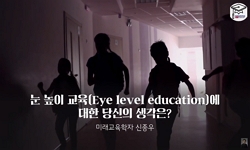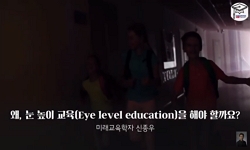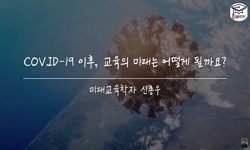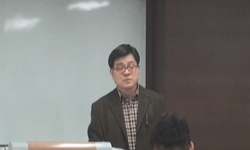본 연구는 브라질의 고질적인 풍토병중의 하나이자 사회를 유지하는 데 가장 본원적 토대가 되는 교육에 미친 사회 불평등의 배경과 코로나19가 교육부문에 미친 영향을 살펴보았다. 먼저 ...
http://chineseinput.net/에서 pinyin(병음)방식으로 중국어를 변환할 수 있습니다.
변환된 중국어를 복사하여 사용하시면 됩니다.
- 中文 을 입력하시려면 zhongwen을 입력하시고 space를누르시면됩니다.
- 北京 을 입력하시려면 beijing을 입력하시고 space를 누르시면 됩니다.

브라질 교육 불평등의 사회경제적 배경과 COVID-19가 미친 영향 = The Socio-Economic Background of Education Inequality in Brazil and the Impact of COVID-19
한글로보기https://www.riss.kr/link?id=A107314512
- 저자
- 발행기관
- 학술지명
- 권호사항
-
발행연도
2021
-
작성언어
-
-
주제어
코로나 19 바이러스 ; 브라질 ; 교육 ; 불평등 ; 본성과 양육 ; Covid-19 ; Brazil ; Education ; Inequality ; Nature and Nuture
-
등재정보
KCI등재
-
자료형태
학술저널
-
수록면
83-124(42쪽)
-
KCI 피인용횟수
0
- DOI식별코드
- 제공처
-
0
상세조회 -
0
다운로드
부가정보
국문 초록 (Abstract)
본 연구는 브라질의 고질적인 풍토병중의 하나이자 사회를 유지하는 데 가장 본원적 토대가 되는 교육에 미친 사회 불평등의 배경과 코로나19가 교육부문에 미친 영향을 살펴보았다. 먼저 인간사회 불평등의 기원을 본성과 양육이라는 이분법의 프레임으로 살펴보았다. 그리고 연구대상에 자기불일치 프레임을 적용하여 연구자의 분석 시각을 정립했다. 다음으로 브라질의 시대별로 구분하여 교육 불평등을 낳게 하고 고착시켜 온 사회경제적 배경을 살펴보았다. 사실상 민주화 이후 좌파와 우파 정치성향에 상관없이 교육개혁의 필요성과 중요성에 대한 인식은 동일하다. 교육이 이미 시장화 되고 상품화된 우리나라의 시각에서 볼 때 1988년 시민헌법 제정 이후로 공교육을 가치재(Merit good)보다 공공재(Public good)로 지켜온 브라질의 저력은 그 우둔함이 놀라우면서 동시에 우려스러운 것도 사실이다. 보통 교육개혁은 사회구조를 상수로 두고 교육을 변수로 둔다. 브라질의 경우는 사회구조가 급변하는 데 비해 교육이 상수로 고정되어 왔다. 이는 곧 교육이 공공재의 껍질을 쓰고 가치재로서 소수의 엘리트 계층에게 특혜를 제공하면서 다수의 “국민”을 배제하고 “그들의 브라질”을 고수해 왔다는 것이다. 이제 브라질도 사회도 교육도 변수로 두는 모험이 필요한 시대에 들어섰다. 지난 13년간 좌파정권이 시도해 왔던 사회통합의 노력은 무한대로 반복될 것 같은 브라질 정치지형변화의 문법의 틀 안으로 다시 돌아갔다. 그러나 520년 역사에서 13년 동안의 실험은 이제 시작에 불과하다. 무엇보다도 브라질은 사회도 교육도 아닌 인간화 교육을 상수에 두었던 ‘연대의 페다고지’란 씨앗을 품고 있는 나라이다. 아무쪼록 판데믹이라는 외부의 강제력이 지금까지의 시대가 초래했던 모순을 넘어, 사회도 교육도 근본적으로 변화할 수 있는 기회로 활용하기를 기대한다.
다국어 초록 (Multilingual Abstract)
This study examined the background of social inequality in education, one of Brazil's endemic diseases and the most central foundation for maintaining society, and the impact of COVID-19 on the Ministry of Education. First, we examined the origins of ...
This study examined the background of social inequality in education, one of Brazil's endemic diseases and the most central foundation for maintaining society, and the impact of COVID-19 on the Ministry of Education. First, we examined the origins of human social inequality by the two-part method of Nature and Nuture. And by applying the Self-discrepancy framework to the study, the researchers' point of view was established. Then, we looked at the socioeconomic context that caused and adheres to the inequalities in education in the order of Brazilian era. In fact, since the era of democratization, whatever the political position of the left and the right, the perception of the necessity and importance of education reform is the same. From the perspective of South Korea, where education has already been marketed and commoditised, it is also true that brazil's strength in protecting public education as public good without turning it into a merit good since the enactment of the Civil Constitution in 1988 is surprising and at the same time a concern. Education reform generally puts social struture as constants and education as variables. In Brazil, education has been fixed as a constant compared to rapid changes in social structures. This means that education has been adhering to "their Brazil", excluding a large number of “people” while peeling off public goods and providing preferential benefits to a small group of elites as social capitals. Now Brazil is entering an era where both society and education must be placed as variables. The efforts of social integration that the left-wing government has tried for the past 13 years have returned to the framework of the Grammar of Brazilian political change, which is likely to be repeated indefinitely. But the 13-year experience of his 520-year history is just the beginning. Above all, Brazil is a country which embraces the seeds of solidarity, which has placed humanized education in a constant, and not in a society or education. We expect that the external crisis of pandemic to go beyond the contradictions of the times so far, and that society and education will be used as opportunities to fundamentally change.
참고문헌 (Reference)
1 "학습격차요? 속편한 사람들 얘기죠. 밥도 못 챙겨 먹이는데"
2 최금좌, "프랑스가 브라질고등교육에 미친 영향: ‘상파울루 대학교’(USP)를 중심으로" 중남미연구소 37 (37): 169-196, 2018
3 "코끼리 곡선"
4 유성상, "제 삼세계 문해교육의 사회․정치적 특성 분석: 브라질과 탄자니아의 사례를 중심으로" 한국비교교육학회 19 (19): 249-278, 2009
5 박남기, "인도와 브라질의 고등교육 기회균등정책 분석" 한국비교교육학회 25 (25): 341-370, 2015
6 "유엔지속가능발전목표(SDGs)"
7 "유색인종과 빈곤계층이 코로나19의 피해를 가장 많이 받은 것으로 밝혀졌다"
8 염철현, "소수자우대정책의 최근 동향 및 시사점: 미국과 브라질의 사례를 중심으로" 대한교육법학회 25 (25): 109-134, 2013
9 샤르마, 루치르, "브레이크아웃 네이션" Tornado 2012
10 이양호, "브라질의 좌파정권과 소득불평등" 동서문제연구원 31 (31): 5-31, 2019
1 "학습격차요? 속편한 사람들 얘기죠. 밥도 못 챙겨 먹이는데"
2 최금좌, "프랑스가 브라질고등교육에 미친 영향: ‘상파울루 대학교’(USP)를 중심으로" 중남미연구소 37 (37): 169-196, 2018
3 "코끼리 곡선"
4 유성상, "제 삼세계 문해교육의 사회․정치적 특성 분석: 브라질과 탄자니아의 사례를 중심으로" 한국비교교육학회 19 (19): 249-278, 2009
5 박남기, "인도와 브라질의 고등교육 기회균등정책 분석" 한국비교교육학회 25 (25): 341-370, 2015
6 "유엔지속가능발전목표(SDGs)"
7 "유색인종과 빈곤계층이 코로나19의 피해를 가장 많이 받은 것으로 밝혀졌다"
8 염철현, "소수자우대정책의 최근 동향 및 시사점: 미국과 브라질의 사례를 중심으로" 대한교육법학회 25 (25): 109-134, 2013
9 샤르마, 루치르, "브레이크아웃 네이션" Tornado 2012
10 이양호, "브라질의 좌파정권과 소득불평등" 동서문제연구원 31 (31): 5-31, 2019
11 양은미, "브라질의 정치적 세속성( laicidade)과 공교육의 세속성" 한국 포르투갈-브라질 학회 10 (10): 27-40, 2013
12 윤택동, "브라질의 불평등, 제도 그리고 경제발전간의 상관관계에 대한 연구" 국제학연구소 12 (12): 113-136, 2003
13 김한철, "브라질의 교육시스템: 문맹률과 기초교육 발전지수" 한국 포르투갈-브라질 학회 13 (13): 5-29, 2016
14 다마따, 호베르뚜, "브라질사람들" 후마니타스 2015
15 이승용, "브라질 조합주의의 시대, 문화적 배경" 한국 포르투갈-브라질 학회 17 (17): 39-60, 2020
16 손봉현, "브라질 입법체계" 8 : 83-93, 2011
17 "브라질 사람 허영심"
18 샤이델, 발터, "불평등의 역사" 에코리브르 2017
19 리들리, 매트, "본성과 양육" 김영사 2004
20 몰란더, 피어, "무엇이 불평등을 낳는가" 메가스터디 2017
21 지야 통, "리얼리티 버블" 코쿤북스 2021
22 마이클 샌델, "공정하다는 착각" 와이즈베리 2020
23 "https://www.bbc.com/portuguese/brasil-41236052"
24 "https://ftp.ibge.gov.br/Trabalho_e_Rendimento/Pesquisa_Nacional_por_Amostra_de_Domicilios_continua/Nota_Tecnica/2013_12_09_nota_pnad_continua.pdf#:~:text=A %20PNAD%20Cont%C3%ADnua%20%C3%A9%20parte%20do%20Sistema%20Integrado,bem%20como%20otimizando%20os%20recursos%20a%20serem%20utilizados"
25 "https://en.unesco.org/news/unesco-figures-show-two-thirds-academic-year-lost-average-worldwide-due-covid-19-school"
26 "https://agenciabrasil.ebc.com.br/educacao/noticia/2021-01/unicef-55-milhoes-estavam-sem-atividades-escolares-em-outubro"
27 "http://www.ilemonde.com/news/articleView.html?idxno=5460"
28 "http://www.hani.co.kr/arti/society/rights/169739.html"
29 "http://www.hani.co.kr/arti/opinion/because/963401.html#csidxf69f32bdc2bf881b07ef938ab684a85"
30 "World Inequality Report 2018"
31 Karnal, L, "Todos contra Todos" LeYa 2017
32 "S시스템"
33 Higgins, E. T, "Self-discrepancy: A theory relating self and affect" 94 : 319-340, 1987
34 Singer, A, "Raízes sociais e ideológicas do Lulismo" 85 : 83-202, 2009
35 Nesves, E, "Privatizar as universidades públicas ainda é tabu, mas existem boas"
36 "Políticas Educacionais na Pandemia da COVID-19"
37 "Políticas Educacionais na Pandemia da COVID-19"
38 "Plano Nacional de Educação(PNE)"
39 Draibe, S, "Para a Década de 90: Prioridades e perspectivas de Políticas Públicas" Brasília 1990
40 "Os critérios do Plano São Paulo"
41 Sheherazade, R, "O Brasil tem cura" Edição Mundo Cristã 2015
42 "O Brasil gasta demais com universidade pública?"
43 Pêucheux, M, "Language, Semantics and Ideology" arbans Nagpal 1982
44 Laus, S. L, "Higher Education in Latin America" The World Bank 111-147, 2005
45 Lindert, P, "Glowing Public: Social Spending Economic Growth since the Eighteenth Century" Cambridge University Press 200
46 Cardoso, F.H, "Entrevista" 21 : 5-20, 1992
47 "Education at a glance 2020 : Brazil"
48 "Education at a glance 2017 : Brazil"
49 OECD, "Eduation at a glance 2020"
50 Hart, C, "Discourse, Grammar and Ideology" Bloomsbury Academic 2014
51 Ellyard, P, "Destination 2050" Preferred Futures Insitute 2013
52 "Censo da Educação Superior 2017"
53 "Brazil: Teachers, students protest ‘scandalous cuts’ to education"
54 Pinsky, J, "Brasil O Futuro Queremos" Editora Contexto 2018
55 "Bolsonaro chama Paulo Freire de 'energúmeno' e diz que TV Escola ‘deseduca’"
56 "Bolsonaro To Erase Paulo Freire And Feminism From Textbooks"
57 Avelino, W. F., "A Realidade de Educação Brasileira a partir da COVOD-19" 2 (2): 56-62, 2020
58 Neri, M, "A Nova Classe Média: O Lado Brilhante da base da Pirâmide" Saraiva 2011
59 Almeida, A.C, "A Cabeça do Brasileiro" Record 2007
60 "5,5 milhões de brasileiros deixaram de estudar na pandemia, diz Unicef"
61 스칼론, 셀리, "2013 라틴아메리카" 229-254, 2013
62 "10 Mitos sobre a universidade pública no Brasil"
동일학술지(권/호) 다른 논문
-
브라질의 코로나19 위기 대응을 위한 경제정책이 정부부채의 지속가능성에 미친 영향 분석
- 한국포르투갈-브라질학회
- 김영석 ( Kim Young Seok )
- 2021
- KCI등재
-
- 한국포르투갈-브라질학회
- 김한철 ( Kim Han-chul )
- 2021
- KCI등재
-
빅데이터 분석을 통한 한국 포털사이트의 라틴아메리카 관련 뉴스 보도 행태 연구: 브라질과 멕시코 관련 기사를 중심으로
- 한국포르투갈-브라질학회
- 정호윤 ( Jung Hoyoon )
- 2021
- KCI등재
분석정보
인용정보 인용지수 설명보기
학술지 이력
| 연월일 | 이력구분 | 이력상세 | 등재구분 |
|---|---|---|---|
| 2023 | 평가예정 | 재인증평가 신청대상 (재인증) | |
| 2020-01-01 | 평가 | 등재학술지 선정 (재인증) |  |
| 2019-12-01 | 평가 | 등재후보로 하락 (계속평가) |  |
| 2016-03-23 | 학회명변경 | 한글명 : 한국 포르투갈-브라질 연구 -> 한국 포르투갈-브라질 학회 |  |
| 2016-02-17 | 학회명변경 | 한글명 : 한국 포르투갈-브라질 학회 -> 한국 포르투갈-브라질 연구영문명 : Korean Association of Luso-Brazilian Studies -> Korean Association of Lusophone Area Studies(KALAS) |  |
| 2016-02-17 | 학술지명변경 | 외국어명 : Portuguese-Brazilian Studies -> Journal of Lusophone Area Studies |  |
| 2016-01-01 | 평가 | 등재학술지 선정 (계속평가) |  |
| 2015-12-01 | 평가 | 등재후보로 하락 (기타) |  |
| 2011-01-01 | 평가 | 등재학술지 선정 (등재후보2차) |  |
| 2010-01-01 | 평가 | 등재후보 1차 PASS (등재후보1차) |  |
| 2009-05-07 | 학회명변경 | 영문명 : Korean Society of Portuguese-Brazilian Studies -> Korean Association of Luso-Brazilian Studies |  |
| 2008-01-01 | 평가 | 등재후보학술지 선정 (신규평가) |  |
학술지 인용정보
| 기준연도 | WOS-KCI 통합IF(2년) | KCIF(2년) | KCIF(3년) |
|---|---|---|---|
| 2016 | 0.17 | 0.17 | 0.17 |
| KCIF(4년) | KCIF(5년) | 중심성지수(3년) | 즉시성지수 |
| 0.16 | 0.14 | 0.566 | 0 |





 KCI
KCI KISS
KISS






